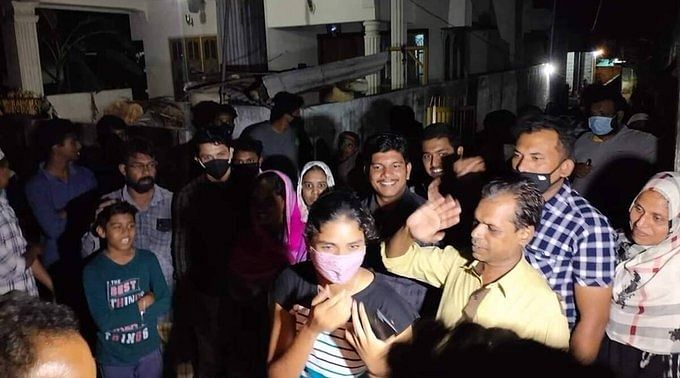At this period in history where women are on par with men, from military to sports, an 18-year-old long jumper, who is hearing and speech impaired, was not allowed to participate in the World Deaf Athletics Championships, allegedly, because she is a woman. Forgetting that of the total six medals, excluding the hockey bronze, won by India at the Tokyo Olympics, three came from women athletes.
Sameeha Barwin lost her ability to hear and speak at the age of six when she was affected due to smallpox. She is certified 90 per cent disabled. Undeterred by her disability, Barwin found her passion for sports, excelling in long jump competitions, both at the state and national level. Barwin has 13 medals added to her name that she has won across competitions. The athlete from Tamil Nadu skipped her exams to focus on the championship qualifiers, scheduled to be held at Poland from 23 August 2021.
What went wrong
After being selected in the state category from Tamil Nadu, Barwin participated in the national selection test conducted by the All India Sports Council of the Deaf (AISCD) at New Delhi on 22 July 2021. A total of 12 sportspersons from across India took part, with seven of them in male category and only two in the female category. The condition precedent for a female to be selected is 4.25m in long jump — Barwin crossed the five-meter mark, making herself eligible to qualify for the deaf Olympics. The only other female participant, apart from Barvin, could not cross the five-metre mark. However, Barwin’s name was not to be found in the final selection list. The apparent reasoning offered to Barvin’s mother and coach was nothing short of bizarre. She was told how it was not possible to send a lone female candidate with an all-male contingent and that the government did not have funds to provide for a female coach and other arrangements to ensure her security. Two MPs from Tamil Nadu — Thol Thirumavalavan and Vasanth Vijay — volunteered to bear the athlete’s expenditure. Letters by the MPs, expressing the interest to sponsor Barwin, were sent to the sports ministry. The State Commissioner for Persons with Disability in Tamil Nadu also wrote to the ministry. Tamil Nadu chief minister M.K. Stalin spoke to the sports minister to take up Barwin’s case. However, all went in vain.
But last week, a Madras High Court order gave relief to the athlete after lawyer and disability rights activists R. Prabhakaran took Barwin’s case to the High Court of Madras. The case was scrupulously represented to the court on behalf of the All India Council of the Deaf. In an interim order, the court asked the AISCD to allow Barwin to take part in the championship to be held at Lublin, Poland. The court observed that her potential has to be tapped and she being the only female athlete ought to have been selected among the top five.
“The SAI even before the selection trial has accorded sanction to select best five only even though applied for ten athletics by AISCD to participate in the said championship due to the present condition of Pandemic prevailing everywhere. As per the merit list ranking, Ms. Sameera Barwan was standing on 8th place. And as we are unable to break the instructions of SAI for five persons only, we were unable to include the remaining athletes from 6th rank to 10th. We hope that Sameera will perform well for future chances. And AISCO always select the team on merit only in each competition,” AISCD had told the court.
Also read: I pleaded to junk ‘divyang’ from govt records but Madras HC quashed it, ignoring SC verdicts
A rights issue
While we wish Barwin would win a medal for the country, the way she was treated brings out the sorry state of affairs of India’s sports bureaucracy and the selection of athletes to represent India in the international platforms. What the AISCD forgot is the right to reasonable accommodation of persons with disabilities, enshrined in the Rights of Person Disabilities Act 2016. In a similar incident, the Supreme Court recently intervened and allowed Paralympian Naresh Kumar to participate in the men’s 50m rifle shooting event at the Tokyo Paralympics.
Barwin’s case brings out the level of consideration given to women in sports by selection committees that are predominantly male. Sports authorities should learn from their mistakes, be more objective and wield more caution before selecting candidates with more potential to represent India.
Karpagam is the first female visually challenged Advocate at the Madras High Court. Views are personal.
(Edited by Anurag Chaubey)



